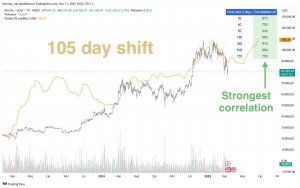Social Media Wars: Facebook and LinkedIn

1. Should Facebook develop features to allow people to efficiently hunt for jobs on their website, including posting their professional vita?
As the saying goes, stick to your knitting. If a company tries to do too much or extend beyond its comfort zone, it is likely to encounter significant strains on its infrastructure. Sticking to the company’s bread and butter will allow it to provide what it provides in the most effective and efficient way.
And Facebook is a social network for sharing photos and news between friends. It is not a business network, and has grown a reputation for being particularly anti-business (Noonan, 2012).
Market analysis suggests that the main competitors for Facebook are Instagram (owned by Facebook), Snapshat, and Twitter (Cheung, 2020) as they provide more or less the same social platform as Facebook. Professional networking site LinkedIn competes with Facebook primarily inasmuch as LinkedIn provides social networking opportunities. But the professional aspect of LinkedIn is unmatched by any other site, including Facebook.
2. Should Facebook develop features to allow businesses to hunt for employees on their website, including posting job descriptions and job vacancies?
Similarly to the first question, I think the answer is no. To add to the rationale, not only would developing the professional applications be strategically ill-advised, so too would it be costly without the promise of a great return. First, developing features on web applications is a tremendous undertaking, especially for such a complex site as Facebook. You can glimpse the scope of the work that would need to be done to add professional features such as headhunting or resume reviewing by considering the kind of effort it took to add simple features like adding videos to the feed. Second, the primary return on an investment like those proposed here would be in attracting new members. But Facebook already has 2.5 billion users—far more than any other social media site, including professional site LinkedIn (Cooper, 2020).
3. Should LinkedIn develop features to allow people to post personal pictures and videos on their website?
Yes, and here is why: Since Microsoft bought the professional networking site, LinkedIn has already reimagined itself with Facebook-like features such as news feeds and media posts. This has improved the user experience of the site, not because it is becoming less professional and more social, but because social features like personal photos and videos help to make the professional experience better. While you do not need to be professional to be social, you need to be social to be professional. And, so it makes sense that LinkedIn should develop these social features.
4. Should LinkedIn and Facebook merge? What are the pros and cons of merger for the two firms?
No. CFI (n.d.) identifies six primary motivations for mergers: value creation, diversification, acquisition of assets, improve financials, tax benefits, and management incentives. On all of these motivations, I think a Facebook-LinkedIn merger ranks low and should not be pursued. Pros would be limited due to the lack of direct competition that would be eliminated. Cons would outweigh the pros since financials, taxes, and management prospects would all likely suffer under the expanded enterprise.
5. Should LinkedIn and Facebook cooperate rather than merge? Identify and describe three ways the two rival firms could cooperate in mutually beneficial ways.
Hsu (Gans et al., 2007) claimed that cooperation benefits companies more when one or more of three conditions is present: (1) the firm controls intellectual property rights, (2) the firm has low transaction costs, and (3) the firm has accumulated significant sunk costs to compete in the industry. Since these apply to both Facebook and LinkedIn, it would seem that cooperation is a smart strategy. Cooperation might include integrated features such as LinkedIn- and Facebook-branded links on the other site, cross-platform APIs, and data-sharing on the back-end.
References
CFI (n.d.). Motives for mergers. CFI. https://corporatefinanceinstitute.com/resources/knowledge/deals/motives-for-mergers/
Cheung, B. (2020, March 17). Who are Facebook’s main competitors? Investopedia. https://www.investopedia.com/ask/answers/120314/who-are-facebooks-fb-main-competitors.asp
Cooper, P. (2020, March 9). 20 LinkedIn statistics that matter to marketers in 2020. Hootsuite. https://blog.hootsuite.com/linkedin-statistics-business/
Gans, J. S., Hsu, D. H., Stern, S. (2007, July 1). Compete or cooperate? KelloggInsight. https://insight.kellogg.northwestern.edu/article/compete_or_cooperate
Noonan, C. (2012, March 5). Could your Facebook page ruin your job prospects? The Guardian.https://www.theguardian.com/education/mortarboard/2012/mar/05/can-facebook-ruin-job-prospects





